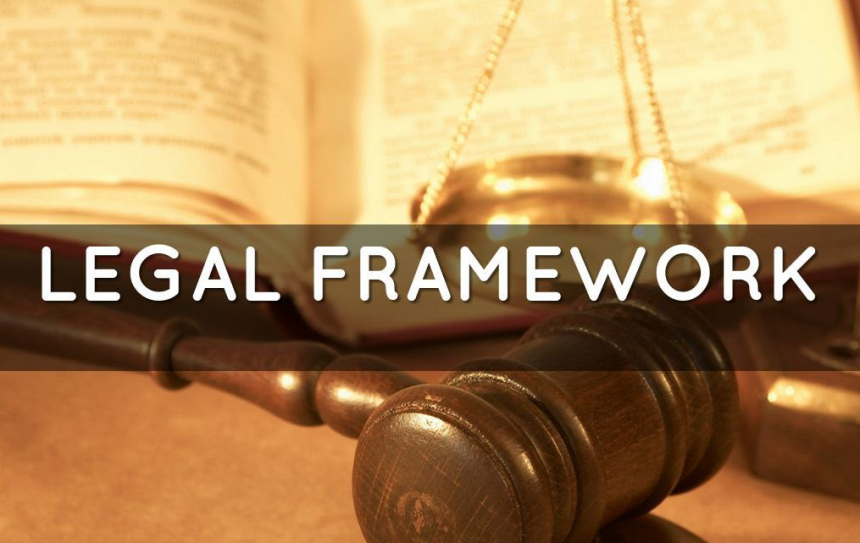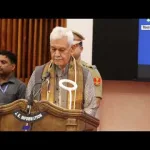The administration of UT of Jammu & Kashmir is observing vigilance Awareness week from 28th October 2024 to 3rd of November, 2024 to create awareness about the fight against corruption and to bring fairness and transparency in the public administration. The legal framework in vogue in the UT of Jammu & Kashmir to tackle the menace of corruption primarily includes Prevention of corruption Act, 1988 & the Jammu & Kashmir Public Men & Public Servants Declaration of Assets Act, 1983. The other legislation governing the subject includes PMLA Act, 2002 FCR Act, 2010, FEO Act, 2018 etc.
The term corruption has nowhere been given a legislative definition; however the Prevention of corruption Act, 1988 under chapter iii specifies certain acts and omissions as offences and prescribes punishments for the same.
Section 7 of the Act prohibits the public servant from obtaining or accepting any illegal gratification from any person for improper or dishonest performance of public duty and in case the public servant indulges in such activity he will render himself liable for a punishment of imprisonment up to the term of 7 years. Any attempt to obtain such illegal gratification on the part of the public servant shall also be an offence and punishable in the same manner.
The Prevention of corruption Act also evenly applies to such persons who though are not public servants but they obtain an undue advantage from any person with a motive to induce or influence a public servant for improper discharge of his official duties. Such persons render themselves liable for a punishment under section 7A of the Act of an imprisonment up to the term of 7 years.
As aforementioned, accepting or obtaining bribe is an offence, offering bribe is equally an offence and is punishable under section 8 of the Act. The section provides that if any person gives bribe to another to influence the discharge of public duty in a particular manner such person will render himself liable to the punishment of imprisonment for a term which may extend to 7 years.
It will be pertinent to mention here that sometimes a person may be acting under a compulsion and may be forced to pay the bribe. In such situation he will not be liable to any punishment if he informs the law enforcement agency or the investigating agency of such compulsion within seven days of paying the bribe.
Sometimes commercial organizations may also be found involved in bribing the public servant for obtaining undue advantages and in such cases the commercial organization will also be punishable under the Act. Moreover, where it is proved in the court of law that the offence by the commercial organization has been committed with the consent or connivance of its Director or any other officer such Director or Officer will be liable for a punishment of an imprisonment for a term which may extend to 7 years.
Under the PC Act the public servant has been forbidden from indulging in a criminal misconduct. If a public servant misappropriates or subjects any property to his own use which property was entrusted to him or was under his control as a public servant he will be guilty of a criminal misconduct and will suffer a punishment of an imprisonment for a term which may extend to 10 years. Similarly a public servant will be held guilty of a criminal misconduct if he enriches himself illicitly i.e. if he accumulated property which is disproportionate to his known source of income.
Under section 9 of the Jammu & Kashmir Public Men & Public Servants Declaration of Assets and other Provisions Act, 1983 it has been made incumbent upon a public servant to submit a return of all the assets possessed by him or his family members within 3 months of his becoming a public servant. Moreover the public servant is bound to submit the annual return of assets held by him and his family members in the month of January every year and shall offer explanation for any increase in the assets and the source thereof.
Under section 12 of the Act the public servant has been prohibited from transferring or acquiring any immoveable property without obtaining permission in writing from the prescribed authority. Similarly, acquisition or transfer of movable property by the public servant shall be brought in the notice of the prescribed authority where the value of the property exceeds certain limit.
Section 13 of the Act prohibits the public servant from engaging in any trade or business without the permission in writing of the prescribed authority. Any violation on the part of public servant of supra mentioned provisions will render him liable for punishment.
(Author is working as Senior Prosecuting Officer in Jammu & Kashmir Prosecution Services)







